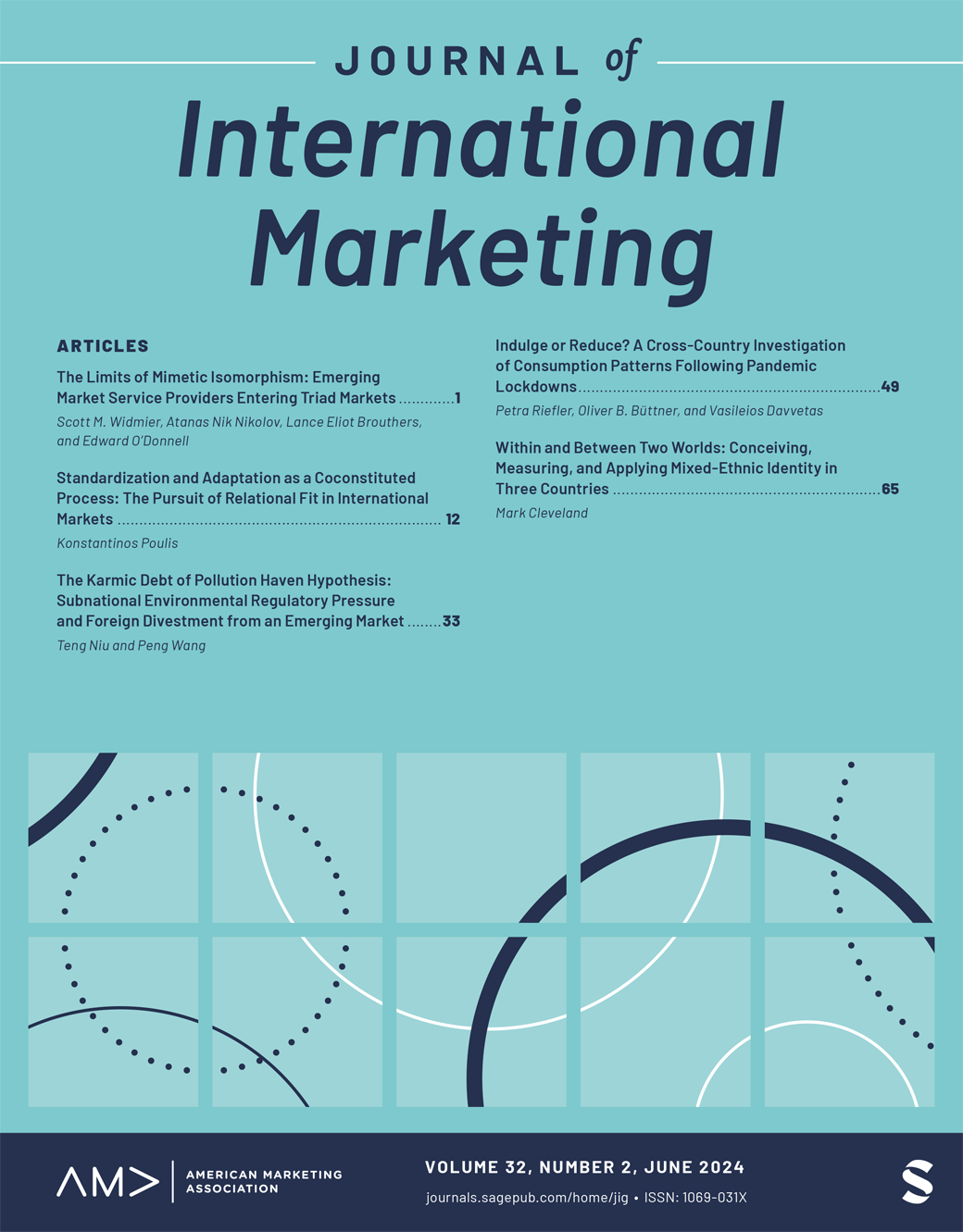消费者的环境可持续性信念与行动主义:一项跨文化研究
IF 4.9
2区 管理学
Q1 BUSINESS
引用次数: 3
摘要
环境可持续性研究缺乏全面的跨文化调查,缺乏对人类价值观与环境信仰和行为之间相互作用的深入了解。此外,尽管理解消费者为什么积极尝试保护环境很重要,但研究环境可持续性行动主义的作用的研究仍然很少,整合性差,定义不清。在这种背景下,这项研究捕捉到了特定的人类价值观与环境可持续性信念的联系,以及它们与个人环境可持续性行动主义和生活质量的后续关系。利用来自美国和中国的数据,作者表明,宗教信仰和相互依存与环境可持续性信念始终相关,而与之前的发现相反,物质主义没有显著关系。此外,仅在美国样本中,世代性与环境可持续性信念呈正相关,而家庭价值观仅在中国样本中显著。结果表明,环境可持续性信念影响环境可持续性行动主义,而环境可持续性活动主义又与个人对卓越生活质量的感知有关。该研究讨论了对实践的几点启示,并确定了富有成效的未来研究方向。本文章由计算机程序翻译,如有差异,请以英文原文为准。
Consumers’ Environmental Sustainability Beliefs and Activism: A Cross-Cultural Examination
Environmental sustainability research suffers from a paucity of comprehensive, cross-cultural investigations and lacks insight into the interplay of human values and environmental beliefs and behaviors. In addition, despite the importance of understanding why consumers engage in active attempts to protect the environment, studies examining the role of environmental sustainability activism remain scarce, poorly integrated, and ill-defined. Against this backdrop, this research captures the links of specific human values with environmental sustainability beliefs and their subsequent relationships with individuals’ environmental sustainability activism and quality of life. Using data from the United States and China, the authors show that religiosity and interdependence are consistently related to environmental sustainability beliefs, whereas, contrary to previous findings, materialism has no significant relationship. In addition, generativity is positively linked with environmental sustainability beliefs only in the U.S. sample, whereas family values are significant only in the China sample. The results show that environmental sustainability beliefs influence environmental sustainability activism, which in turn is linked with individual perceptions of superior quality of life. The study discusses several implications for practice and identifies fruitful future research directions.
求助全文
通过发布文献求助,成功后即可免费获取论文全文。
去求助
来源期刊

Journal of International Marketing
BUSINESS-
CiteScore
8.70
自引率
17.20%
发文量
28
期刊介绍:
As the globalization of markets continues at a rapid pace, business practitioners and educators alike face the challenge of staying current with the developments. Marketing managers require a source of new information and insights on international business events. International marketing educators require a forum for disseminating their thoughts and research findings. Journal of International Marketing(JIM) is an international, peer-reviewed journal dedicated to advancing international marketing practice, research, and theory. Contributions addressing any aspect of international marketing management are published each quarter.
 求助内容:
求助内容: 应助结果提醒方式:
应助结果提醒方式:


